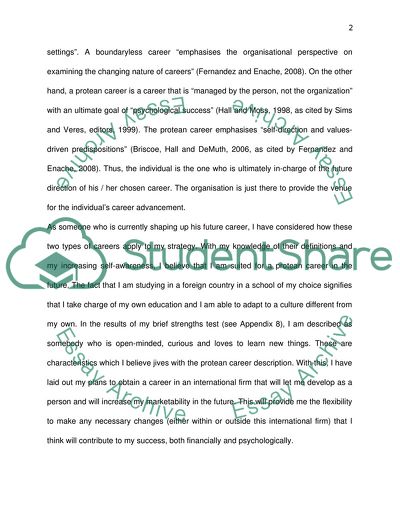Cite this document
(My Personal Career Strategy Essay Example | Topics and Well Written Essays - 2500 words, n.d.)
My Personal Career Strategy Essay Example | Topics and Well Written Essays - 2500 words. Retrieved from https://studentshare.org/human-resources/1723508-demonstrate-how-to-use-a-range-of-tools-and-concepts-from-this-course-to-construct-your-personal-career-strategy
My Personal Career Strategy Essay Example | Topics and Well Written Essays - 2500 words. Retrieved from https://studentshare.org/human-resources/1723508-demonstrate-how-to-use-a-range-of-tools-and-concepts-from-this-course-to-construct-your-personal-career-strategy
(My Personal Career Strategy Essay Example | Topics and Well Written Essays - 2500 Words)
My Personal Career Strategy Essay Example | Topics and Well Written Essays - 2500 Words. https://studentshare.org/human-resources/1723508-demonstrate-how-to-use-a-range-of-tools-and-concepts-from-this-course-to-construct-your-personal-career-strategy.
My Personal Career Strategy Essay Example | Topics and Well Written Essays - 2500 Words. https://studentshare.org/human-resources/1723508-demonstrate-how-to-use-a-range-of-tools-and-concepts-from-this-course-to-construct-your-personal-career-strategy.
“My Personal Career Strategy Essay Example | Topics and Well Written Essays - 2500 Words”. https://studentshare.org/human-resources/1723508-demonstrate-how-to-use-a-range-of-tools-and-concepts-from-this-course-to-construct-your-personal-career-strategy.


